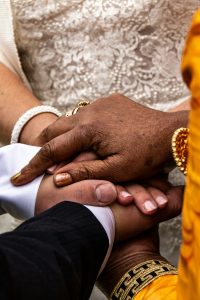
UK Immigration Update from Taylor Hampton
Effective January 31, 2024, a new VISA pathway has been established for individuals abandoned by their spouses through transnational marriage abandonment. This initiative aims to support victims seeking entry clearance to the UK, emphasizing the need for detailed evidence. This is to demonstrate abandonment and any related abuse. Applicants are guided through a streamlined process, focusing on the essential documentation and legal criteria required for a successful application.
What is Transnational Marriage Abandonment?
Transnational marriage abandonment is the case in which a sponsor or other members of their family intentionally desert their VISA partner. In essence, it prevents them from returning to the UK. Sadly, this phenomenon is recognized as a form of domestic abuse and is unfortunately far more common than one might think.
Therefore the goal of this article is to clarify the process for victims looking to obtain a VISA under the Appendix Victim of Domestic Abuse. Above all, we explain how they may seek rectification and justice for past injustices.
Standard of Proof
In fact, victims of transnational marriage abandonment are subject to a “reasonable degree of likelihood” standard of proof. This is notably less stringent than the “balance of probabilities” required for in-country domestic abuse victims. As such, it is recognising the unique challenges faced by those abroad.
Suitability and General Grounds for Refusal
Essentially, the first hurdle is the suitability criteria, which involve avoiding refusal under the general grounds detailed in Part 9 of the Immigration Rules. Indeed, these grounds largely pertain to an applicant’s past immigration and criminal records. However, victims of transnational marriage abandonment benefit from certain leniencies. For instance, re-entry bans typically applied to overstayers do not automatically apply. As a result, it acknowledges that abusers may control vital documents. Similarly, discretion is advised for caseworkers considering discretionary grounds for refusal, like NHS debts, possibly incurred due to abuse.
Immigration Status Requirements
Eligibility for indefinite leave under these rules is not open to all. Actually, it crucially depends on the victim’s last granted leave category, requiring a connection to a British citizen, someone with indefinite leave, an EEA national covered under the EU Settlement Scheme, a refugee, or in certain cases, a member of HM Armed Forces. Additionally, those linked to non-settled persons, such as sponsored workers or students, typically do not qualify. Moreover, it’s worth noting that having valid leave at the time of application is not necessary. Therefore it is accommodating victims whose leave has been compromised by their abuser.
A pivotal criterion is that the victim’s relationship must have dissolved specifically due to domestic abuse. Typically this can originate from the partner or another family member. For this reason, the Home Office recognizes transnational marriage abandonment as a form of domestic abuse. Thus, if abandonment led to the relationship’s end, this requirement is automatically considered fulfilled.
Conclusion
For more information on immigration law or questions regarding the subject, please contact Leena Chouhan, who is a Senior Associate at Taylor Hampton and the head of the firms Immigration legal department, at 020 7427 5972, or email on [email protected].
